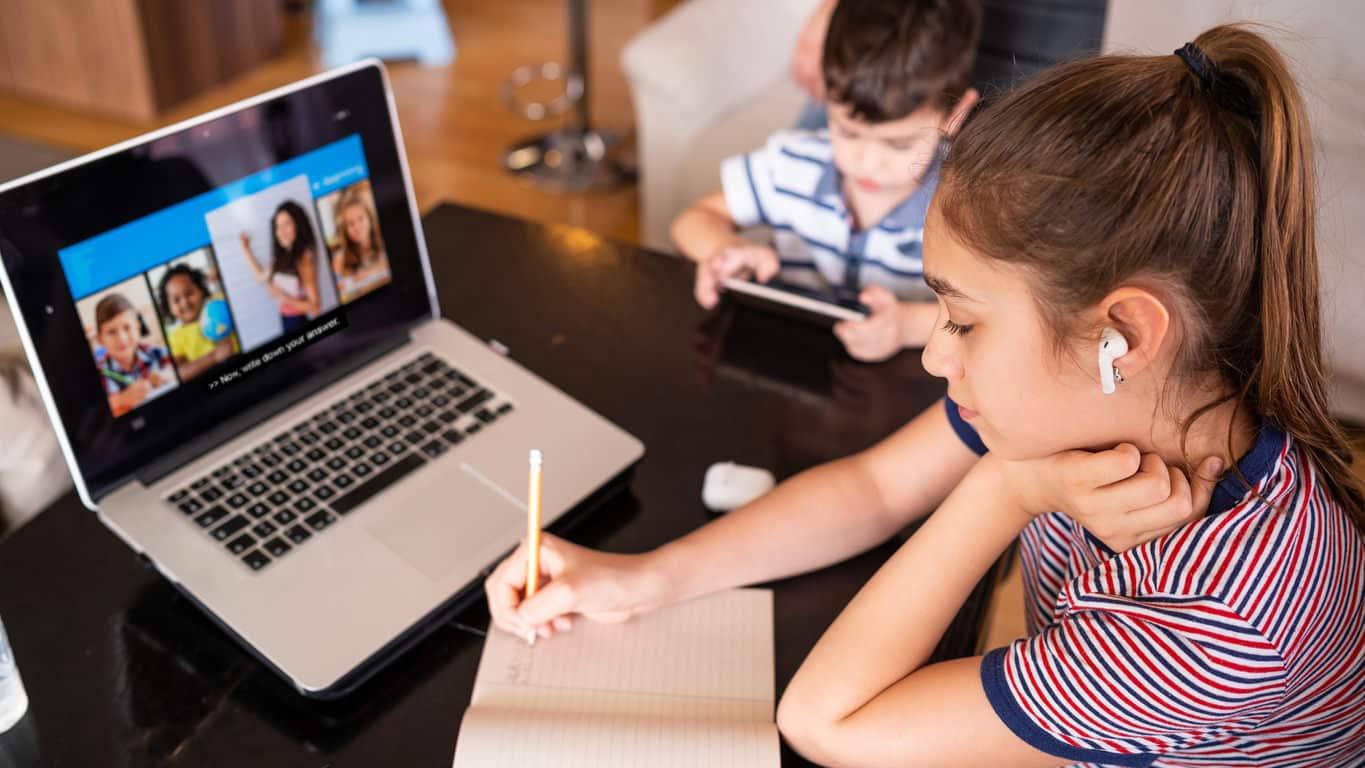Academic Live
Provide accurate, high-quality captions for classes and lectures to boost student success, create more inclusive learning environments and meet regulations.
Learn moreIt’s crucial to provide accessibility tools to students and community members who are Deaf or hard of hearing in the classroom and throughout the entire campus. However, these technologies are also proven to benefit the entire student body with more ways to learn and engage. Explore our education products designed to support your inclusion needs, while also helping with retention, improved overall learning experiences and more.
Provide accurate, high-quality captions for classes and lectures to boost student success, create more inclusive learning environments and meet regulations.
Learn more
Caption important onsite community events, including commencement ceremonies, sports, guest lectures, open houses and more.
Learn more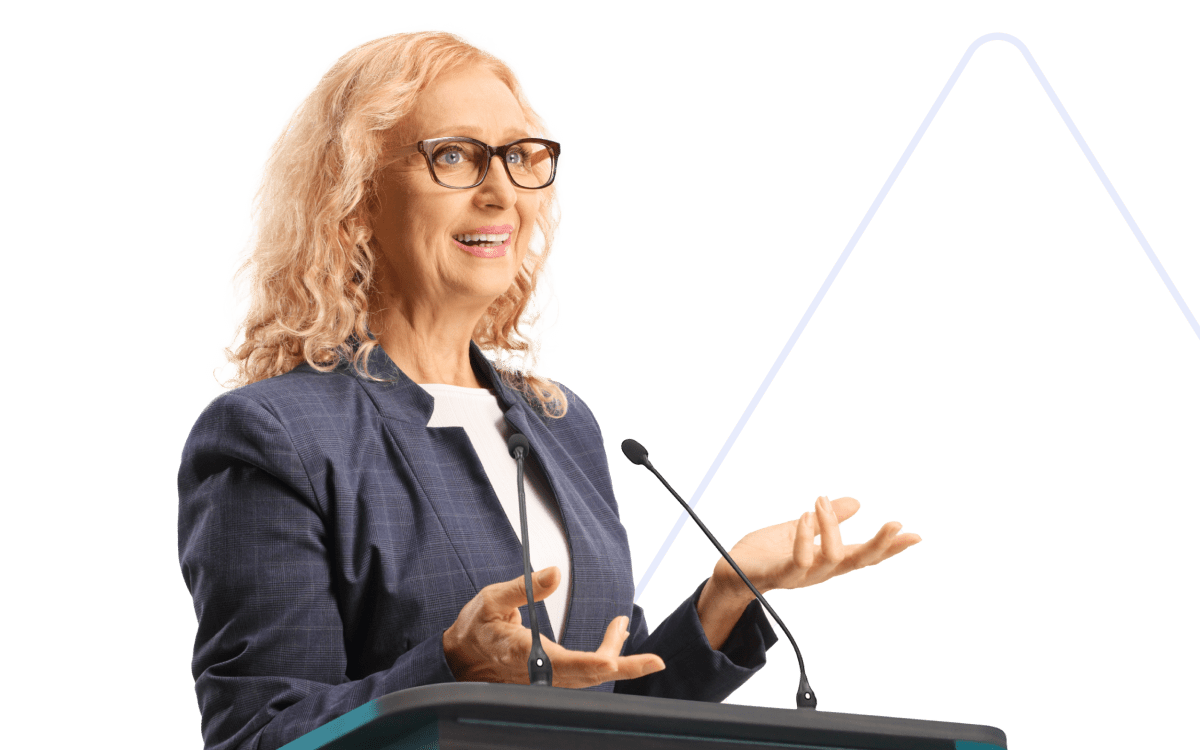
Translate your commencement ceremonies, events and lectures to additional languages in real-time to engage your community and prospective students globally.
Learn more
Make recorded lectures, events and administrative content accessible with post-production captions and transcripts, customized to appear however you need them.
Learn more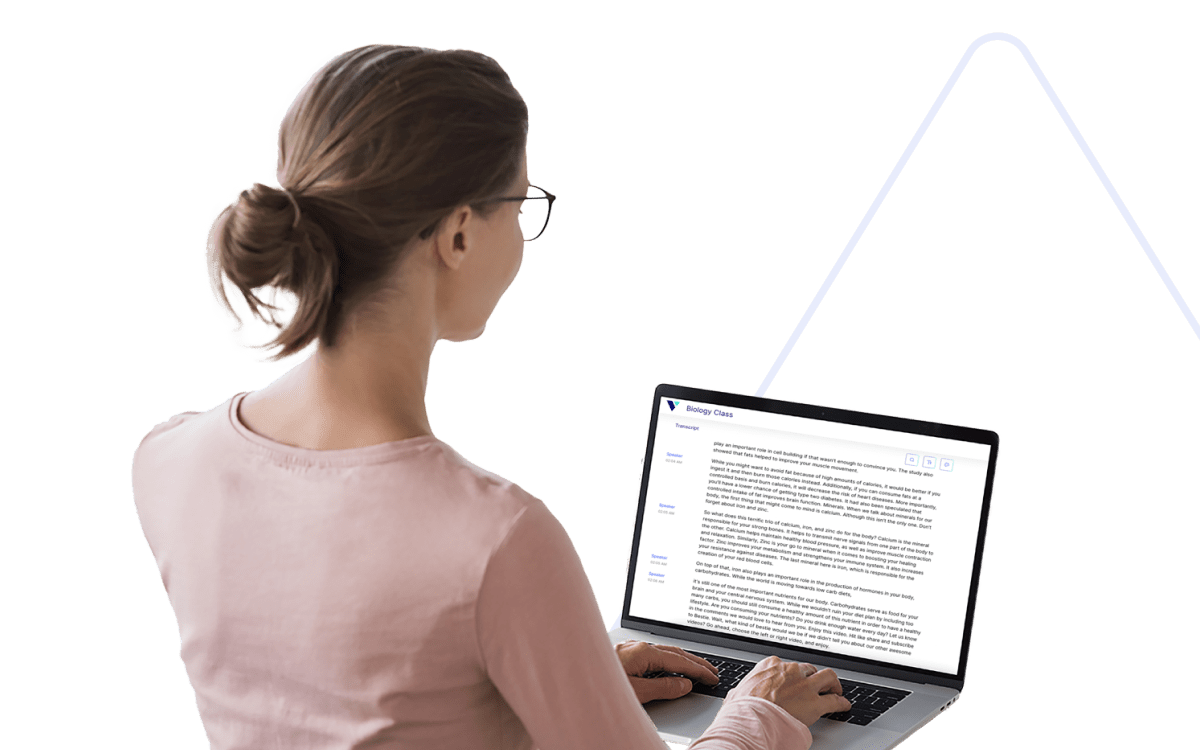
Caption and transcribe curated and archived content like digital library archives, visitor exhibits, online learning collections and more.
Learn more
Translate recorded educational, administrative and promotional content to attract international audiences and connect with others in a variety of available languages.
Learn more
Make your video content accessible to students and viewers who are blind or have low vision with our advanced audio description technology.
Learn more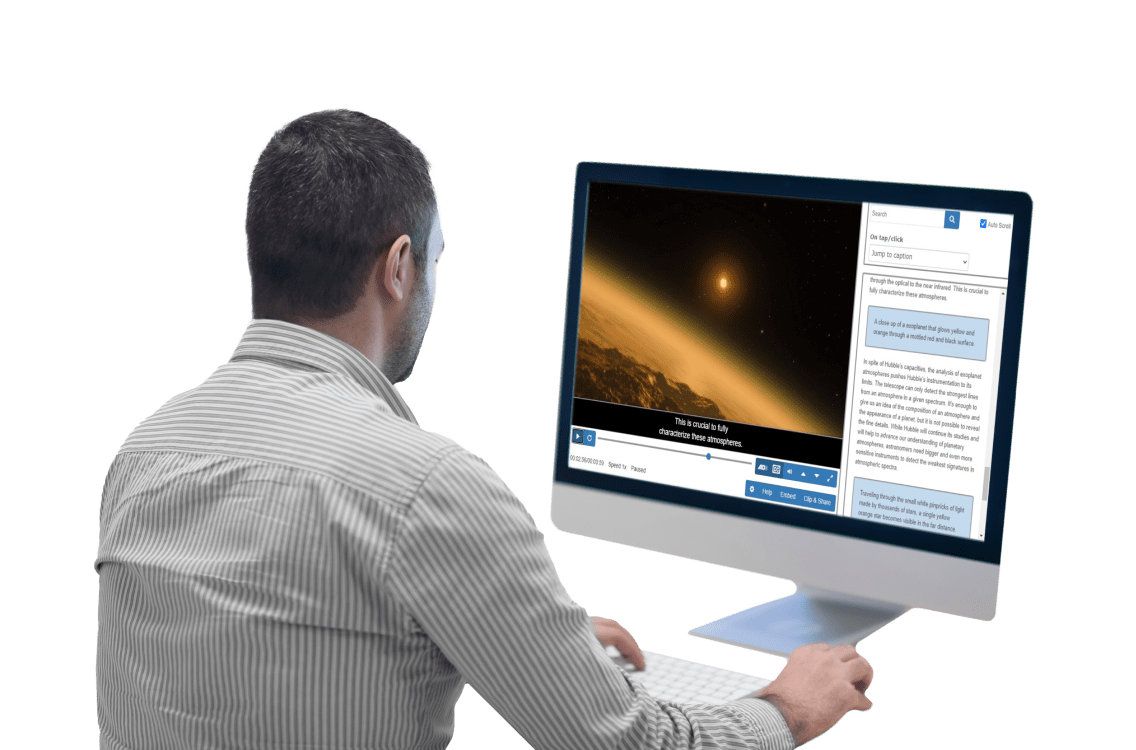
Add dubbed audio tracks to your classroom, admin, training and promotional videos to expand your audience reach.
Learn more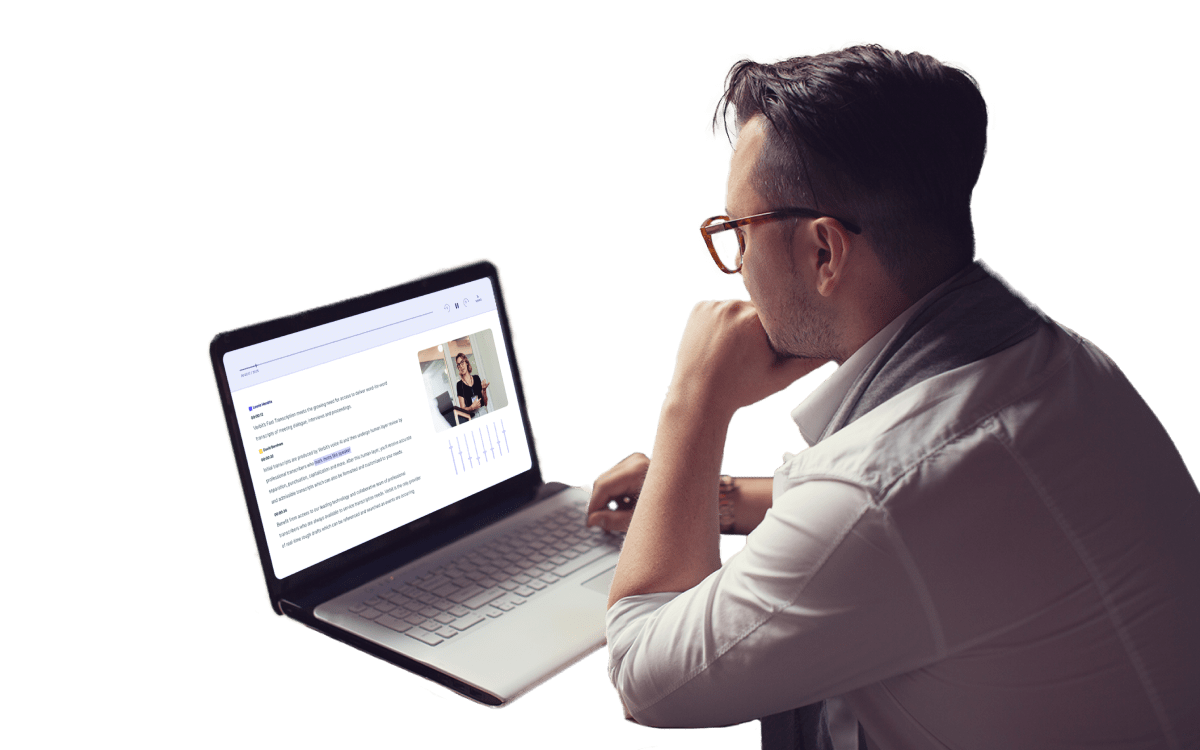
Transform class lectures, administrative discussions and community events into helpful, organized notes for students and faculty alike, with options for summaries.
Learn more
Provide accurate, high-quality captions for classes and lectures to boost student success, create more inclusive learning environments and meet regulations.
Learn more
A number of schools, nationally recognized universities, community colleges, online lecture providers, and informational program producers rely on our wide range of services. Our solutions include:
With more than 30 years in the captioning and communications accessibility industry, you can trust our knowledge and rely on our experience. Work with us, and our accessibility solutions will move you to the head of the class.
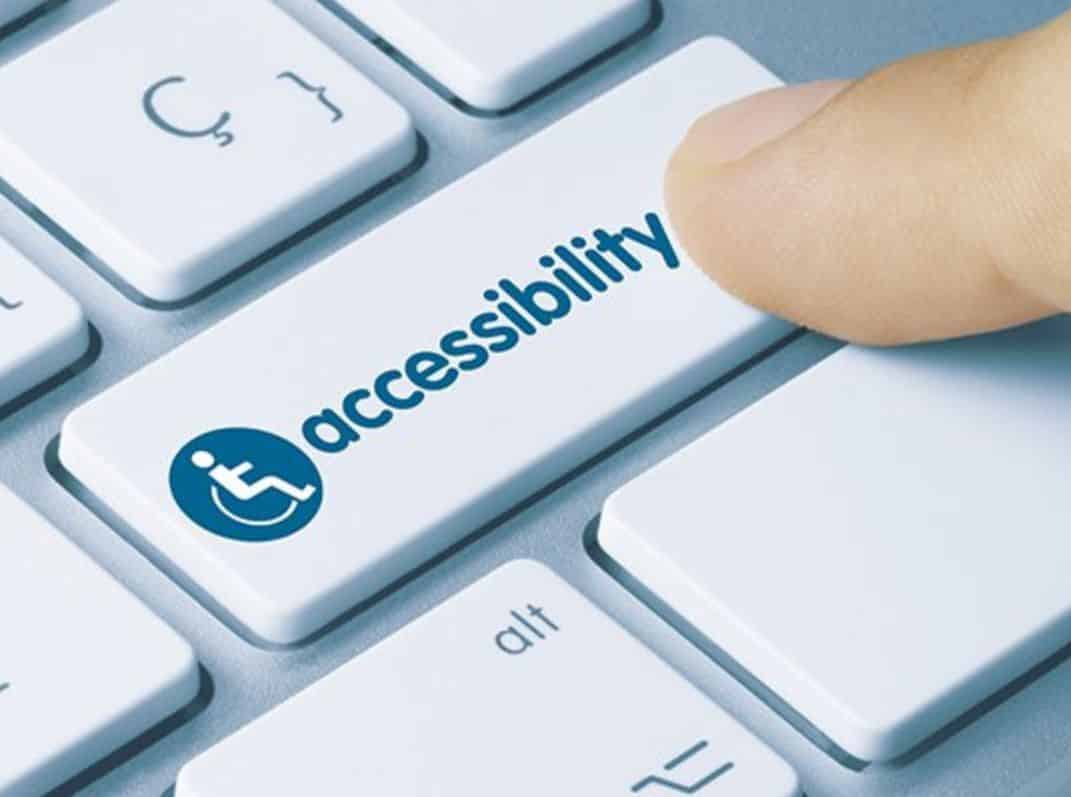
Offline Captioning: We worked with a leading provider of online math videos to create captioned, accessible content. The provider first attempted an automated captioning solution − with transcripts uploaded and automatically timed by an engine − but quickly realized that fractions and formulas weren’t well-suited for an automated atmosphere as captioned formulas routinely were split over multiple lines. We jumped in to help and created verbatim translations in English and Spanish, and manually formatted captions to ensure the subject matter was readable and understandable.
Realtime Captioning: An Ivy League college was looking to provide captioning for sporting events distributed via their online portal. We worked with the institution to install the proper equipment and began scheduling and captioning live events.
Distance Education Captioning and Transcription. VITAC is a pre-approved vendor for the California Community Colleges’ Distance Education Captioning and Transcription (DECT) grant. The grant enables California Community Colleges to expand their video accessibility efforts by providing funding for live and prerecorded captioning and transcription as a means of enhancing access for all students in distance education courses. We are one of only two approved vendors for live captioning, which includes captions for classes, lectures, and podcasts delivered live via webcast, broadcast, internet TV, and other means.
YouTube Solutions: A university posting lectures and lessons to its YouTube Channel was looking for a way to make its videos searchable and accessible to its deaf and hard-or-hearing students. As a “YouTube Ready” caption vendor, we designed a simple solution for delivery of video and receipt of caption files.
Everyone benefits when classrooms and educational materials are accessible, but we understand that it’s sometimes difficult to plan (or even know how to begin planning) for an inclusive, accessible learning space.
Thankfully, our industry exclusive Reach Further Program™ is dedicated to helping you connect with all students and create new learning opportunities while also satisfying Americans with Disabilities Act and Section 504 rules and requirements.
We understand your world and what you need to make your classrooms and course materials accessible.
Reach Further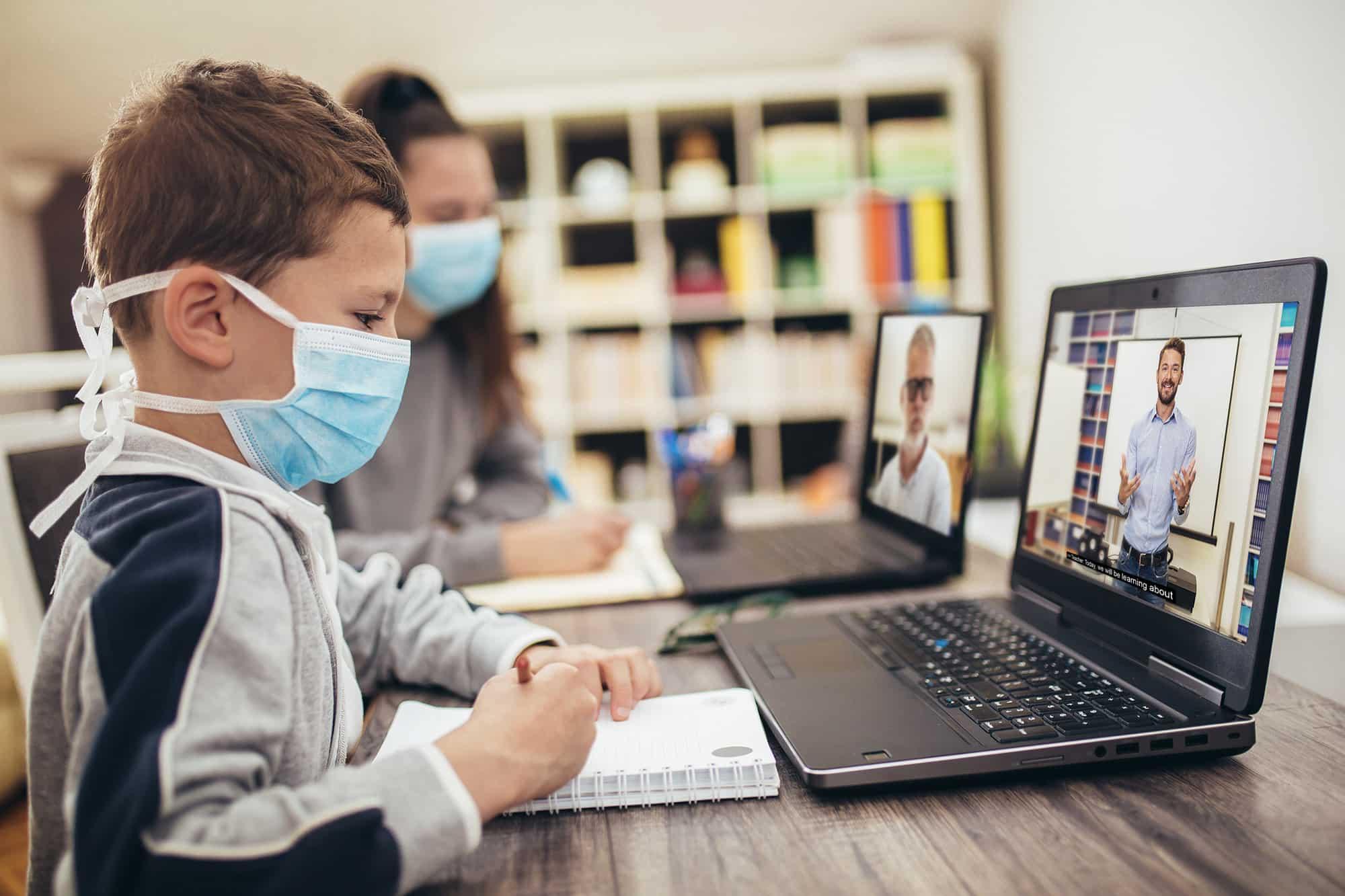
In addition to making classes and course materials accessible, captions and captioned video instruction have a variety of other benefits.
Captions can help students focus, clarifying a video’s muffled or distorted audio, dialogue − particularly accented speech − and technical terms and jargon (remember that physics teacher who always mumbled about quarks, tachyons, and absorption spectroscopy?).
Captions provide the added benefit of transcripts. Teachers can share a transcript of the captioned video, enabling students to read along in class, take notes, and have a printed study guide handy to review later, or share with friends who missed the class.
Captions enable students to take their online video homework anywhere – whether it be the campus coffee shop or the local neighborhood hang-out. Adding captions to online course materials and videos posted on the school’s media pages mean that students can study almost anywhere, even the noisiest of locations.
Captions are beneficial to those learning English as a Second Language (ESL). Captions give ESL students the opportunity to review confusing materials or reference difficult or complex terms that they may have had trouble translating without a written reference.
The Americans with Disabilities Act and Section 504 of the Rehabilitation Act require most educational videos to be captioned or otherwise accessible to ensure effective communication.
Virtual classrooms have grown in popularity as students and teachers use streaming video platforms like Zoom, Webex, Adobe Connect, and ON24 for classroom lessons. Check out our remote meeting integration options to learn how easy it is to add captions to your online classes and instruction!
Learn More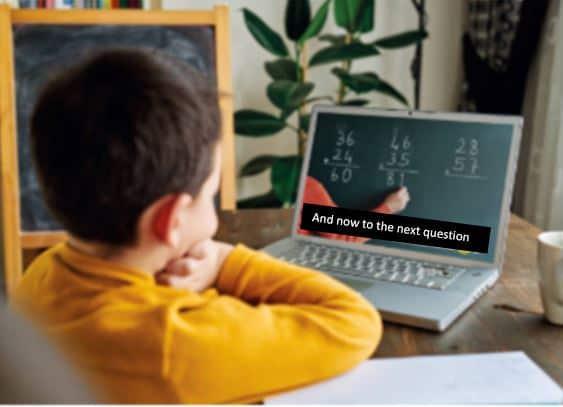
Much in the same way that captions provide a visual way for deaf and hard-of-hearing individuals to experience sound, audio description provides an audio means for people who are blind or with low vision to experience video.
Our audio description professionals insert audio-narrated descriptions of a video’s key visual elements, such as onscreen actions, characters, costumes, and text appearing in graphics in the video, into natural pauses between the program’s dialogue.
And also like captions, adding audio description to video course materials can provide an additional resource to students, helping them focus on the material, increase in-class engagement, and offer another way for teachers to connect.
Learn More